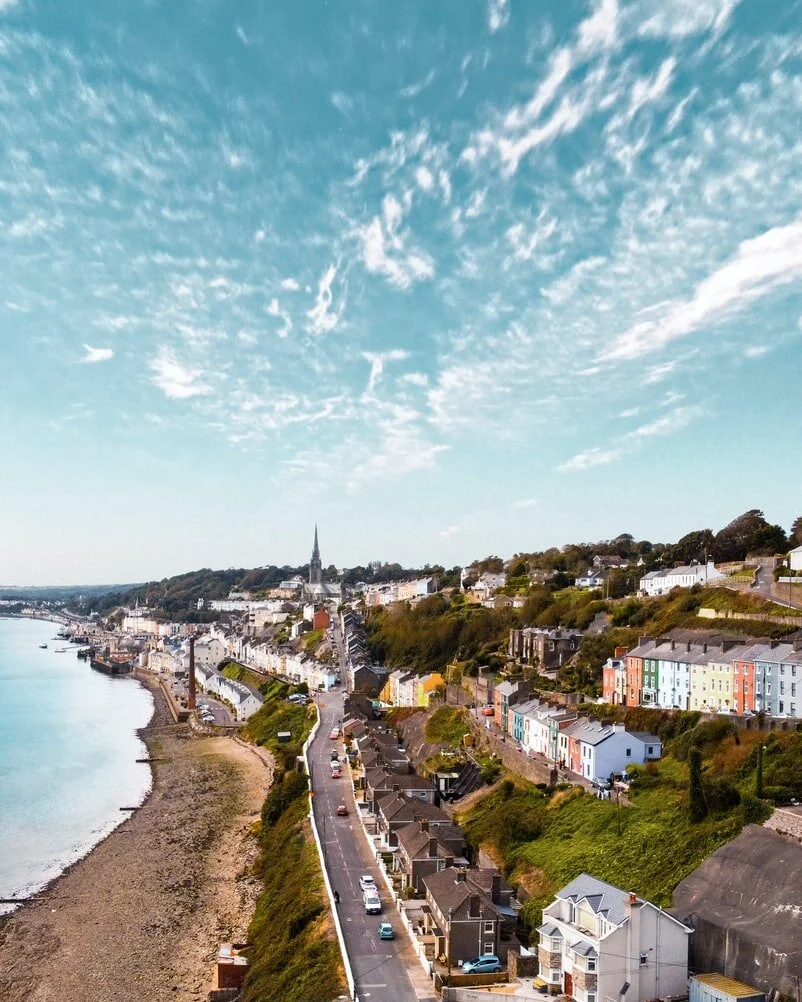By a hair's breadth
Photo by Mark de Jong on Unsplash
While on holidays in the West of Ireland this summer, I went for a walk by the sea with a good friend. There were people everywhere and a nice, relaxed atmosphere. So much so it felt like pre-Covid times again. As we walked and talked, we suddenly became aware that a 90's reg car had driven down a boat ramp. The driver was desperately trying to reverse, to get back onto the road, and avoid being dragged into the sea.
Every time he tried to reverse, he slipped further down the ramp. He stopped, put on the hand-brake and the car kept sliding down. He was within a hair's breadth of the sea. There was a frantic expression on his face. We panicked. We looked around and shouted for help.
One man cycled past; a woman starred from her SUV - worried I'm sure - but without flinching.
My mind was racing. Are we strong enough to push the car and help him up the slope? No, I didn't think so.
Salvaging a situation
We stood beside the car, by the open window and reassured the very distressed driver that he was going to be ok. Then like two mad cheerleaders we began to encourage him as we shouted aloud, ‘come on, you can do it, rev it up, yes, more, more!’ He was an elderly man, and his face had become flushed with the effort, and the stress. Maybe it was the fact that there were two women standing alongside his car and urging him on, but in less than a minute, he had managed to reverse back onto the road.
As he drove away, the relief on his face was evident. It was clear he couldn’t speak. He just looked very shook and flushed.
The two of us stood at the side of the shore reeling from the experience. Images of what might have happened flashed before our eyes.
I began to wonder why others hadn’t offered any help. My friend reminded me of the bystander effect, the more bystanders that witness a crisis, the less people offer to help.
The bystander effect
Three factors seem to contribute to bystander apathy, one feels less responsible when more bystanders are present. There is also the fear of the harsh judgement of others if you help. Added to this, is the thought that one might not have the expertise to deal with the situation, and the presumption that others in the crowd are more qualified to help.
Finally, the belief that because no one else is helping, the situation one is witnessing mustn't be an emergency. It is good to be warned about this psychological pitfall. Studies also show that when one person responds to the emergency, it sets other bystanders into action.
Offers of help - the reality of kindness
As we walked along, I began to reflect on the fact that there was a disproportion between our ‘one-minute’ offer of help and the effect it had. But each moment has its power. A small act of kindness can be a life changer for the person at the receiving end. Sometimes, in an effort to achieve the best result, we end up doing nothing at all, only for want of time. I fall into this myself. So, one trick that helps me is to think of the minimum I can do for a person in need. Once that’s done, I find it easier to do the second-best thing.
I think kindness is one of those qualities that is misunderstood by many. Some see it as a kind of passivity or just good nature, let things take their course, avoid conflict. However, I believe kindness is something deeper which many times takes courage to exercise.
A moment of kindness can build someone up for life or unblock something which is hindering their flourishing.
I read once, 'True kindness allows space and freedom of movement; it even gives and provides these, for only in this way can life grow and develop'.
After all that philosophising, we decided to have a refreshing swim!!
